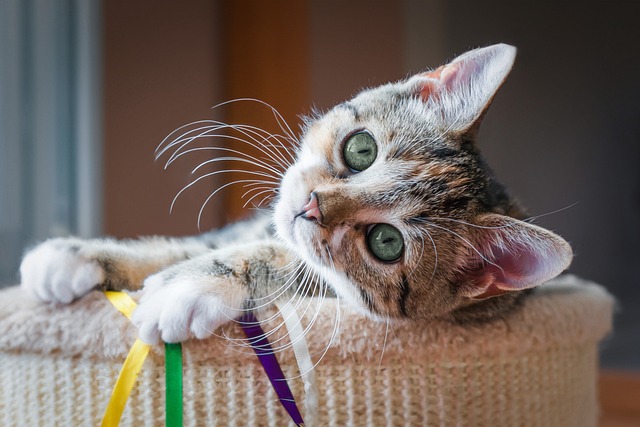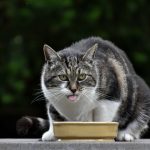If you’re concerned about your cat being underweight despite providing ample food, or if you’ve come across a thin, malnourished stray, you’re likely seeking effective and healthy ways to help them gain weight. Let’s delve into the details.
Understanding Your Cat’s Weight: What’s Healthy?
Just like humans, cats need to maintain a specific weight range for optimal health. An underweight cat is more susceptible to diseases, just as an overweight cat. It’s crucial to focus on helping genuinely underweight cats reach a healthy weight, rather than aiming for excessive plumpness. Trendy images of obese cats on social media don’t represent a healthy state.
Ruling Out Medical Conditions
Before proceeding, it’s vital to rule out any underlying medical conditions that may be causing your cat’s low weight. A visit to the vet is recommended. Various medical issues can contribute to low weight, including dental problems, parasites, food allergies, infections, hyperthyroidism, and inflammatory bowel disease. If a medical condition is identified, your vet will provide specific treatment and dietary recommendations.
Reviewing Other Factors
Once medical issues are ruled out, consider other potential factors affecting your cat’s weight:
- Quality of Current Diet: Cats are obligate carnivores, necessitating a diet rich in animal proteins. Premium cat food should have animal protein as a primary ingredient, rather than relying on cheaper plant-based proteins.
- Environmental Factors: Ensure that your cat’s feeding environment is conducive to their appetite. Factors like noise, proximity to the litter box, or competition from other cats can affect their eating habits.
- Anxiety and Stress: Cats may lose their appetite due to anxiety. Identifying and alleviating sources of stress can help improve their appetite.
- Dietary Changes: Sudden changes in diet may lead to refusal to eat. Gradually transition to new food over a period of 10 days.
8 Tips to Help Your Cat Gain Weight Healthily
- Opt for Canned Kitten Food: It’s higher in protein and fat compared to adult cat food, making it a suitable option for weight gain.
- Choose Fresh or Wet Food Over Dry: Fresh or wet food is generally higher in protein and lower in carbohydrates. It’s also often more appealing to cats struggling with appetite.
- Gradually Increase Food Amount: Don’t expect your cat to consume the full target amount in one go. Split their daily intake into smaller, more frequent meals.
- Add Fish Oil: It’s a calorie-dense supplement that enhances flavor and promotes healthy fur. Look for high-quality fish oil supplements.
- Offer Healthy Homemade Treats: Pieces of boiled chicken or boiled egg can be effective high-calorie treats. Ensure they’re prepared without added salt or condiments.
- Enhance Food Appeal: Use chicken broth (salt-free) to flavor their food. Experiment with temperature, presentation, and consistency to entice them.
- Provide Multiple Food Options: Cats have preferences too. Offer different types of high-quality cat food to see what your cat prefers.
- Monitor for Sensitivities and Intolerances: Watch for signs of digestive issues like gas, bloating, or diarrhea, which may indicate a sensitivity to certain foods.
In conclusion, with careful observation, dedication, and these expert recommendations, you can help your cat achieve a healthy weight. Over time, your cat should thrive in good health and vitality.



